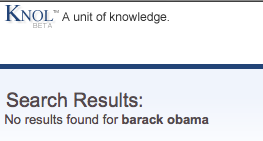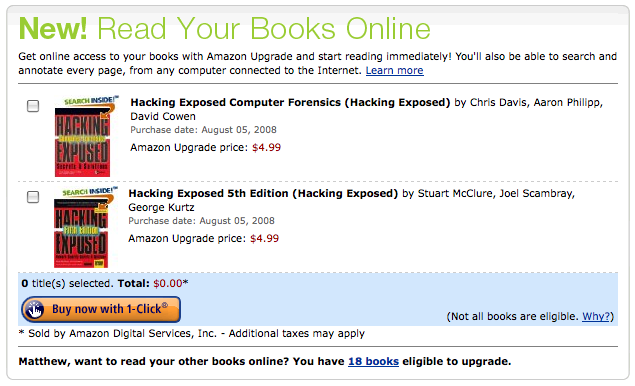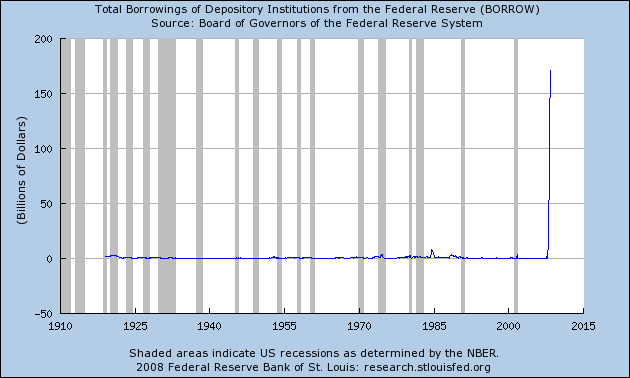Chertoff interview on cyber issues at Wired
Beware the filching. I won't summarize it here, just go read it. [Link--->]
So close yet so far
Amazon at some point has offered the option to by an electronic version of your book for a small sum should you desire immediate access. If they'd offer this as a Kindle download, perhaps even for free, I think they'd hit a homerun.
iPhone application store - love/hate relationship
I love the iPhone application store. Third party applications are real enablers on the iPhone and increase the value of the product in incredible ways.
I hate the iPhone application store. I hate the fact that one of my dream programs (iTether) was released as NetShare on the Application store, then removed, the added, then removed again. During this whole time, I didn't get a copy so no tethering for me. I hate how buggy the update process is. iTunes tells me I only have 1 program that needs to be updated, but when I click the update button 27 applications download!? WTF Apple, let's get change management under control please. I also hate how buggy updating applications via the iPhone can be and I'm not the only one reporting problems (see this week's TWIT podcast).
Adding Cory Doctorow's Little Brother to the required reading list at Georgetown
A few weeks ago I read Cory Doctorow's latest novel entitled Little Brother and was impressed enough with the book to add it to the required reading list for both my classes at Georgetown (Information Warfare and Security and Introduction to Information Privacy).
Little Brother introduces us to a group of teenagers who become concerned with their privacy and security in the aftermath of a series of attacks against San Francisco. Operating in an environment where the cure (DHS security measures) seems to be worse than the disease, they chose to act to disrupt the system and hopefully educate the populace that some freedoms just aren't worth sacrificing. I don't want to give away too much of the plot, but suffice it to say the story is not only emotionally compelling but has enough action and tension to rival the best thrillers out there.
I've chosen to make this book required reading for a few different reasons.
1) Through fiction it gives great insight into real technologies such as encryption, RFID tags, data aggregation and pattern analysis, covert communications, etc. These are all technologies we discuss in class and this book will serve as a good introduction to them while demonstrating how they work as elements of the plot.
2) The book is accessible to a younger audience. I teach the MySpace/Facebook generation and finding material that both educates them and appeals to them by actually embracing the highly technological world they live in is a nice benefit.
3) Cory asks all the hard questions for all the right reasons. While some would find it easy to dismiss this book at being overly liberal, the political elements help drive the plot and are essential to the story. In a deeper reading of the material you'll find genuine debate between characters that care immensely for each other of some very hard issues we are all faced with in today's homeland security environment. I deliberately try to raise these questions for debate in class so the book gives us a head start here as well.
Ultimately Cory's book has several valuable themes. At its core it about the balance between civil liberties and civil security and how much free citizens are willing to endure to counter an unknown threat. In class we often talk about the pendulum and the balance between freedom and security and this book looks at that same issue on several different levels.
On a secondary level it is about the failed promise of homeland security. I was often reminded of Bruce Schneier essays on security theater and how feeling secure if much different than being secure while reading the book. It also exposes many of the fallacies of our technological silver bullets that promise to keep us safe, but when analyzed could never conceivably deliver.
Lastly, it is a tale of a technology induced rebellion and taking action when faced with a pendulum that has swung too far. The heroes are able to utilize technology to circumvent and expose the "system". They aren't of voting age, yet they inspire profound change through their technologically subversive tactics driven by a sense of patriotic duty, a smattering of revenge, and a love of friends, family, and their hurting city. They can't vote or march in the streets, but they can create a covert communications network to coordinate their activity, which makes it all the more realistic to me.
I'd highly recommend the book to anyone reading this blog and I look forward to reading it again with my classes.
(Cover image courtesy of Craphound.com)
The book is available on Amazon and via Doctorow's own site.
Does Knol provide null value?
Like many other technologists, I've been following the launch of Google Knol closely and finally had a chance this evening to create a couple of entries. As someone in the knowledge and intelligence business I'm having a hard time seeing the value in the product thus far. A couple of immediate reactions.
1) As Jason Calacanis has been pointing out, this squarely puts Google in the publishing business which will make a lot of people uncomfortable. If your business is driven by producing content based on a specific expertise or business and then monetizing traffic based on that expertise, Knol promises to have an impact on your livelihood. This could have a negative backlash within the Adsense community as some publishers will see Knol as a direct competitor being funded by the margins on clickthroughs from their sites.
I think Knol will be hard for the Internet community to embrace. For example, a search for Barack Obama and here is what you get:

With millions of people out there blogging about Obama, not a single one has bother to write a Knol about the guy? I'd say that represents a hesitancy to buy into the concept. It could also mean that the Knol search engine doesn't work, which would surprising given its parent. However, I can tell you that Knols I wrote are not showing up in Knol's own search results yet so there could be some deeper underlying issue.
2) What value does Knol bring above and beyond what we already have available to us with other blogging and HTML platforms. In 1996, having and interest and some authority on terrorism issues we launched www.terrorism.com and in 2000, a companion site www.homelandsecurity.com. If someone has a niche interest or expertise they are better off creating something unique that will build in value over time. Launch a website or a blog and make your content dynamic and showcase your expertise on your topics of interest. If you want to contribute to the general body of knowledge contribute to Wikipedia or Mahalo articles.
My friend and former CTO of the Defense Intelligence Agency looked at Knol and has similar reactions:
"So far, I have to admit, I am not impressed. How could this be of more value than the list I already maintain?" (CTO Vision)
I think Bob has a point. It has no value other than being hosted on Google will give it favorable page rank which brings us back to point 1.
3) Lack of centralization will eventually diminish the value of Knol. Right now, anyone can create any page on Knol, even if a page for that topic already exists. That means we might see dozens of pages on one topic within Knol and no consolidation that provides any real "wisdom of crowds" or "guided expert" value. It also makes it harder for users to find what they want. What we need is more focus, not decentralization within initiatives like this. For example, at Mahalo I know I will only ever find one page on "terrorism" and that page represents the best that Mahalo expert guides and the community have to offer. Within Knol, I might have to go through dozens of pages and extract tidbits of value from each one. You'll also have Knol's competing against each other for popularity which means we will start seeing political and ideologically competing Knols. Imagine search result pages clogged with pages of competing Knols. You won't have units of knowledge, you'll have units of opinion. Isn't that what blogs are for?
With competing Knols, the intellectual value of the content will diminish and authoritative will risk being replaced by popular (they have a star rating system after all).
4) Is Knol Squidoo by another name? Getting paid for content you produce is not a bad thing, but introduces additional complexity into the system that I think Knol would be better off without.
Obviously, I am not sold on the concept and think there are some significant issues. What do you think? Leave your reaction in comments and tell me what I've got wrong.
iPhone apps I'd like to see
Inspired by Merlin Mann's list at 43 Folders
SSH - I expect someone will do this shortly. If this phone is running OS X, it is there somewhere to begin with. I want a nice app for this, not a jailbroken command line.
SlingPlayer - Watch my slingbox on my iPhone
Qik - Live video streaming
Traffic Ping - Three buttons to designate current road conditions that gets transmitted over 3G and can be inserted as a layer over Google Maps. Similar to what the dash is doing now, but with one time snapshots.
iTether - Use my iPhone 3G to get a tethered data connection to my laptop.
iLowJack - This would require background services running, but once a day (or every 48 hours or user designated time) prompts me a for a pin. Don’t get the pin right, it transmit the current location to me via email. Might also have an option for a remote wipe of the phone to get rid of personal data. Application checks into a web site every X hours and if “wipe = true” wipes the phone. Obviously, only I should be able to set wipe=true.
iAlert - Location aware program that checks for Alerts in your X mile range. Tornado warnings, severe weather, AMBER alerts, terrorism alerts, traffic warnings, etc. When it notices you are in a new location, it could ask how long you will be there (e.g. I am in Texas for 3 days) and offer an option to push new alerts for that region via SMS for the duration of your trip.
Could also display local news stories by running location aware queries against Google News and returning the results in a nicely formatted RSS feed.
I'd fund this one if there are any iPhone developers out there.
Google Reader - As an application, not a Safari bookmark. Should include device storage of articles for offline reading.
Network Tools - Ping, traceroute, nslookup, whois (maybe a port scanner?) in a nice iPhone application.
SecureID - SecureID passcode generator. I've got a dongle for eTrade and one for Paypal. Would be nice to have a software version of this assuming you can address any security concerns.
iHTTPD - Web server for the iPhone. Turn it on and off as needed, but it should include a file upload capability to basically create and web-based network drive capability. Need to grab that file off your phone, turn on the web service and browse to it for download. Lots of ways this one could play out that are useful.
PGP - Send and read PGP encrypted email.
Salling Clicker - Control my computer for slideshows, etc. Apple Remote application on steroids. Would also love to see some of the more advanced features like screen lock when phone goes out of bluetooth range, etc.
Contact send via bluetooth - This was a great feature on the Palm devices. Set one contact as your business card and transmit it to other iPhones via bluetooth.
Flight Tracker - should be easy enough to build of the web based interfaces.
Infrant ReadyNAS - horrible support after NetGear purchase
I have three ReadyNAS devices. In general, I've been very happy with them, but there is a power supply issue that has resulted in all three devices failing. The first two failed prior to the NetGear purchase and my support requests were responded to quickly and replacement parts were sent for self-installation. The new parts, with an updated firmware have resulted in those two devices operating perfectly since then.
The third device failed after the purchase by NetGear. Here is how NetGear responded to my request detailing this was a known issue and that I was intimately familiar with replacing this part: 6/10/2008 10:02:00 PM
Agent ID:1402
Dear Matthew,
Thank you for choosing NETGEAR. My name is Vinoth and I will be your support engineer.
We will be working to assist you in resolving the issue you described. We are doing this online it may require a few mail exchanges before we can resolve the issue. We will do our best to help resolve your case at the least possible time.
Based on the complexity of this case, it may be appropriate for me to seek additional resources. I recommend escalating your case to the next level for further review and response. We will get back to you as soon as possible.
This message is for your information only. There is no additional action needed from you at this time. The next level support engineer will update the case and you will be notified.
Thanks again for choosing NETGEAR. Have a great day!
Sincerely,
Vinoth
Technical Support
NETGEAR, Inc.
http://my.netgear.com
That was the last I heard from them despite my refreshing the ticket three times since then. The ReadyNAS is not a cheap device, costing nearly $3,000.00 fully configured and serves a critical function (network attached storage for backup). While I like the product in general, I can't recommend it after failing to receive support from NetGear on what should be a simply issue. This particular device was providing backup functionality at a 65 person company and all data currently stored on it is inaccessible until we get the power supply replaced.
Buyer beware. Dealing with NetGear means living without customer support for your products.
Two memes I'm over
I wish they would die a quick and painless death.
"I drink your milkshake"
&
"FAIL!"
...
Shall we play a game?
Wired is running a fantastic article about the 25th anniversary of the movie WarGames, which is arguably one of the most influential movies of my generation and certainly the most influential within the Generation X technology clique.
As noted this interview conducted with me in the year 2000, I had a WarGames poster in my office for years (it is now relegated to the server room in my basement).
When you enter the office of Matthew Devost, one of the most visible monuments to his life’s work is — a poster. More specifically, it’s a poster advertising the 1980s movie War Games, a hacker classic in which a high school kid almost starts World War Three. Devost would admit to the hyperbole of that Cold War film, yet he has become one of the most articulate advocates for educating leaders and the public by the growing threats from cybercrime and information warfare. (Future Presence Interview)
Wired deconstructs the impact the film had dealing with the subjects of nuclear war and technology proliferation at a critical time within the Cold War.
It was the year Ronald Reagan called the Soviet Union an "evil empire"; the year the United Nations implored the Russians to withdraw from Afghanistan; the year ABC aired The Day After, a TV movie about the wake of a nuclear attack on the US. In the midst of all this came WarGames, a fizzy little thriller about looming Armageddon. It's a deceptively simple story: High schooler David Lightman (played by 21-year-old Matthew Broderick) is a digitally proficient goofball who wants to play an unreleased computer game — and impress a pretty girl (Ally Sheedy). So he does something most Americans didn't have a word for back then: He starts hacking. Little does he know, the "computer company" he's infiltrated is actually a military installation running a missile-command supercomputer called the WOPR (War Operation Plan Response), and the game — Global Thermonuclear War — is real. Naturally, only David can stop it from setting off World War III. (Wired)
Worth reading the entire thing. It will also be interesting to put this in context with Kevin Mitnick's book when it is released. He has several quotes in the article discussing how the movie impacted his case including this one:
That movie had a significant effect on my treatment by the federal government. I was held in solitary confinement for nearly a year because a prosecutor told a judge that if I got near a phone, I could dial up Norad and launch a nuclear missile. I never hacked into Norad. And when the prosecutor said that, I laughed — in open court. I thought, "This guy just burned all his credibility." But the court believed it. I think the movie convinced people that this stuff was real. They tried to make me into a fictional character.


